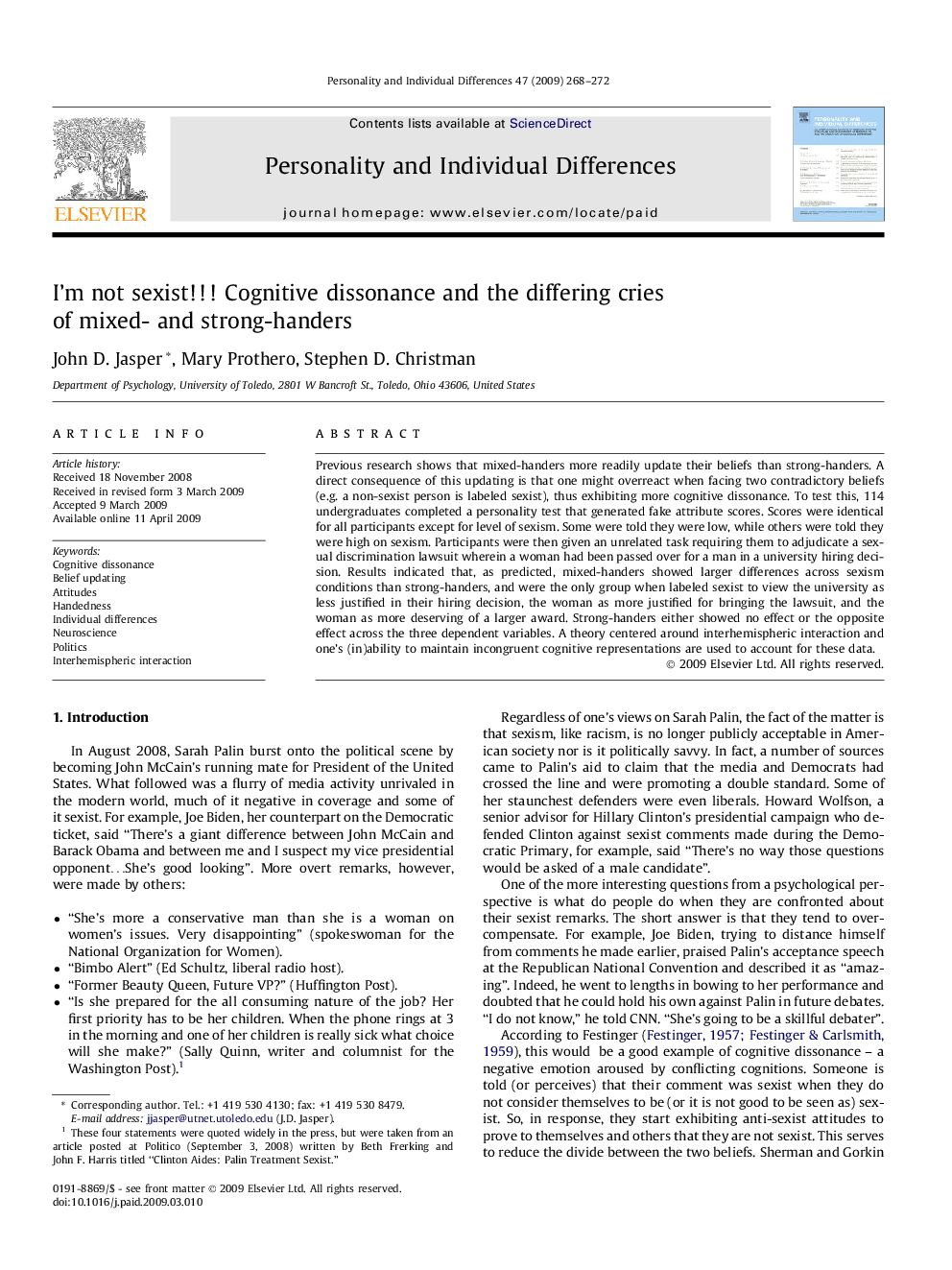| Article ID | Journal | Published Year | Pages | File Type |
|---|---|---|---|---|
| 892464 | Personality and Individual Differences | 2009 | 5 Pages |
Previous research shows that mixed-handers more readily update their beliefs than strong-handers. A direct consequence of this updating is that one might overreact when facing two contradictory beliefs (e.g. a non-sexist person is labeled sexist), thus exhibiting more cognitive dissonance. To test this, 114 undergraduates completed a personality test that generated fake attribute scores. Scores were identical for all participants except for level of sexism. Some were told they were low, while others were told they were high on sexism. Participants were then given an unrelated task requiring them to adjudicate a sexual discrimination lawsuit wherein a woman had been passed over for a man in a university hiring decision. Results indicated that, as predicted, mixed-handers showed larger differences across sexism conditions than strong-handers, and were the only group when labeled sexist to view the university as less justified in their hiring decision, the woman as more justified for bringing the lawsuit, and the woman as more deserving of a larger award. Strong-handers either showed no effect or the opposite effect across the three dependent variables. A theory centered around interhemispheric interaction and one’s (in)ability to maintain incongruent cognitive representations are used to account for these data.
